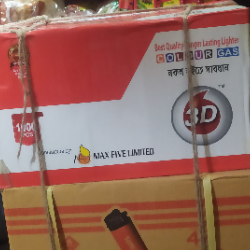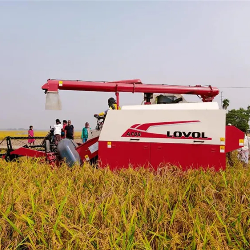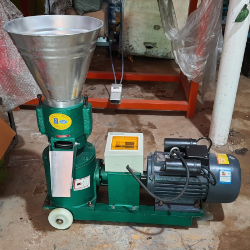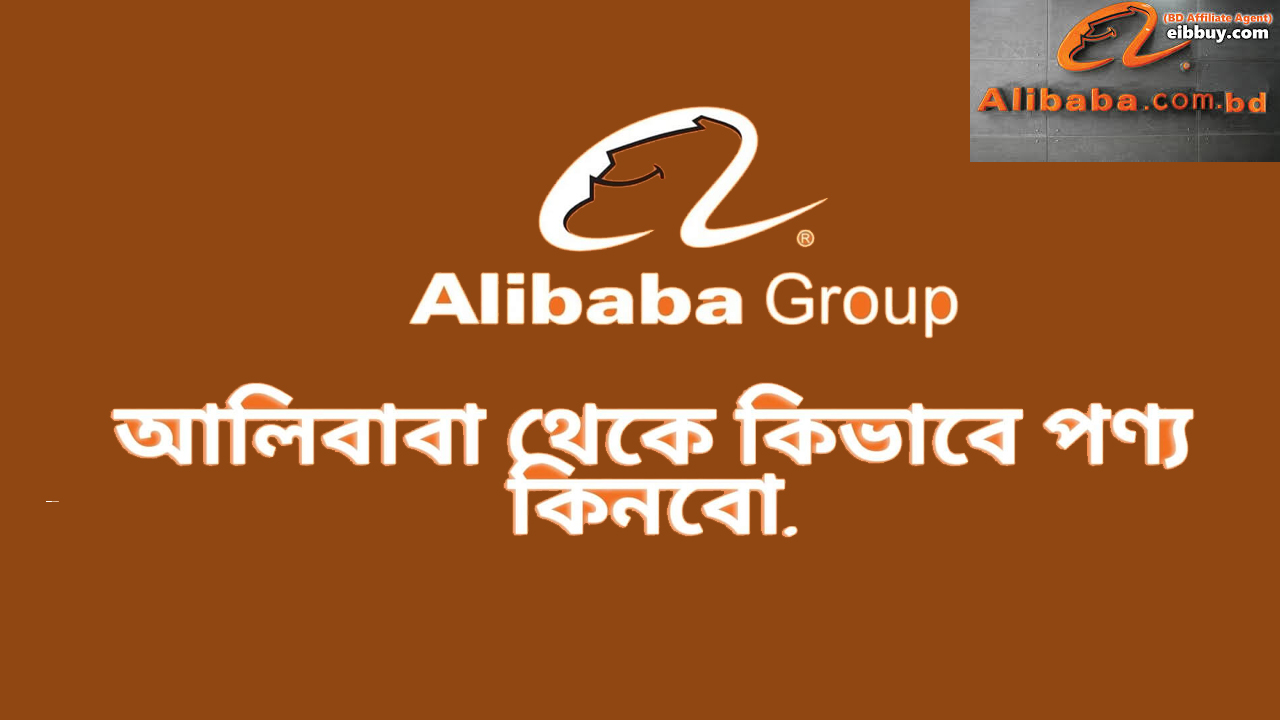Bangladesh, a rapidly developing country in South Asia, offers many opportunities for aspiring entrepreneurs and business-minded individuals. With its growing economy, large population, and increasing consumer demand, the business landscape in Bangladesh is ripe for innovation and growth. In this description, we will explore some profitable business ideas that can succeed in the dynamic market of Bangladesh. Offers numerous opportunities for aspiring entrepreneurs and investors. Its strategic geographical location, improving infrastructure, and supportive business environment make it an attractive destination for business ventures. This article will explore promising business ideas in Bangladesh that can succeed and contribute to economic growth.
E-commerce and Online Marketplaces profitable business ideas in Bangladesh :
In recent years, Bangladesh has witnessed a significant surge in e-commerce, with many customers welcoming online shopping as a convenient and accessible way to purchase goods and services. Online marketplaces have recreated a crucial role in promoting this e-commerce. This article explores the emergence and impact of e-commerce online marketplaces in Bangladesh, highlighting their benefits, challenges, and contributions to the country's digital economy.
The Rise of E-commerce in Bangladesh:
The source of affordable smartphones, increasing internet penetration, and the rising popularity of social media platforms have fueled the growth of e-commerce in Bangladesh. With a population of over 160 million, the country offers a vast market potential for online retailers. E-commerce online marketplaces have emerged as a preferred choice for established businesses and aspiring entrepreneurs to tap into this potential and reach a broader customer base.
Key Online Marketplaces in Bangladesh:
a) Daraz Bangladesh:
Daraz is one of the largest e-commerce platforms in Bangladesh, offering a wide range of products across various categories, including electronics, fashion, home appliances, and more. Its reliable delivery system and robust customer support have gained popularity.
b) Evaly:
Evaly is another prominent online marketplace that has gained significant traction in Bangladesh. It offers various products, including groceries, fashion, electronics, and services like travel and hotel bookings. Evaly has gained popularity through innovative marketing campaigns and attractive discount offers.
c) Bagdoom:
Bagdoom is known for its focus on fashion and lifestyle products. It has created a niche in the market by curating trendy items for the younger demographic. Bagdoom also collaborates with local designers and artisans, promoting Bangladeshi craftsmanship.
d) Pickaboo: Pickaboo specializes in electronics and gadgets. It has gained a reputation for offering genuine products with warranty and reliable after-sales service. Pickaboo's focus on customer satisfaction has helped it establish a loyal customer base.
Benefits of E-commerce Online Marketplaces:
a) Increased market reach:
Online marketplaces allow sellers to expand their reach beyond physical store locations. Small and medium-sized enterprises (SMEs) can access a broader customer base and compete with more prominent players in the market.
b) Convenience and accessibility:
Online marketplaces offer convenience for consumers, allowing them to browse and purchase products from the comfort of their homes. With cash-on-delivery options and secure payment gateways, online shopping has become accessible to a larger population.
c) Competitive pricing and discounts:
Online marketplaces foster competition among sellers, leading to competitive pricing and attractive discounts. This benefits consumers by providing them with various choices and cost-effective options.
d) Empowering entrepreneurs:
Online marketplaces provide a platform for aspiring entrepreneurs to launch their businesses with relatively low investments. They can leverage the marketplace's existing infrastructure, logistics, and customer base, reducing the barriers to entry.
Challenges and the Way Forward:
a) Logistics and delivery:
Efficient logistics and reliable delivery systems are crucial for the success of e-commerce. Online marketplaces must continue investing in improving their supply chain and delivery infrastructure to ensure timely and secure deliveries, especially in remote areas.
b) Trust and customer experience:
Building trust among consumers is essential for the sustained growth of e-commerce in Bangladesh. Online marketplaces should prioritize customer experience, address customer grievances promptly, and ensure the quality and authenticity of products sold on their platforms.
c) Regulatory framework:
The e-commerce sector in Bangladesh is still evolving, and there is a need for a comprehensive regulatory framework to address issues such as consumer protection, data privacy, and fair competition. The government and industry stakeholders should
Agribusiness and Food Processing profitable business ideas in Bangladesh
Bangladesh, a country with a growing population and many agricultural resources, has increasingly focused on developing its agribusiness and food processing sector. With a rich agricultural heritage, favorable climatic conditions, and a vast workforce engaged in farming, Bangladesh has immense potential for agribusiness and food processing activities. This article explores the opportunities, challenges, and potential of Bangladesh's agribusiness and food processing industry.
Agricultural Landscape:
Bangladesh is predominantly agricultural, contributing significantly to its GDP and employing a large portion of the population. The fertile deltaic plains, ample water resources, and favorable climatic conditions make it suitable for cultivating various crops, including rice, jute, tea, vegetables, and fruits. The agricultural sector is the foundation for the country's agribusiness and food processing activities.
Agribusiness Opportunities:
a) Crop Production:
Bangladesh has made significant strides in crop production, particularly rice cultivation, the nation's staple food. High-yield varieties, improved farming techniques, and government support programs have enhanced productivity and created opportunities for agribusinesses in seed production, fertilizers, pesticides, and farm machinery.
b) Livestock and Fisheries:
The livestock and fisheries sectors have grown remarkably. There is a rising demand for poultry, dairy products, and fish due to the expanding middle class and changing dietary habits. Agribusinesses involved in livestock farming, dairy processing, and fish processing are witnessing significant growth and investment.
c) Horticulture and Floriculture:
Bangladesh has vast potential for horticulture and floriculture due to its diverse agro-climatic zones. The production of fruits, vegetables, and flowers is rising for domestic consumption and export. Agribusinesses engaged in horticulture, processing, and exporting these products are gaining momentum.
Food Processing Industry
The food processing industry is crucial in adding value to agricultural products and reducing post-harvest losses. Bangladesh has gradually shifted towards processed and packaged food products, driven by changing consumer preferences and urbanization. Food processing includes milling, refining, canning, freezing, packaging, and preservation. Ready-to-eat meals, snacks, beverages, and processed dairy products have gained popularity. The government has taken initiatives to attract investments and develop industrial zones for food processing units.
Government Initiatives and Support:
The Government of Bangladesh has recognized the importance of agribusiness and food processing for economic development. It has implemented several initiatives to support the sector, including:
a) Policy Reforms:
The government has introduced policies and reforms to encourage private sector investment, facilitate agricultural modernization, and improve the ease of business in the agribusiness and food processing sectors.
b) Infrastructure Development:
Investments have been made in developing agro-industrial parks, cold storage facilities, and logistics infrastructure to promote food processing and reduce post-harvest losses.
c) Financial Assistance:
Various financial incentives, subsidies, and loans are provided to agribusinesses and food processing units to promote investment, technology adoption, and market access.
d) Research and Development: The government emphasizes research and development activities to enhance agricultural productivity, introduce advanced technologies, and develop new products.
Challenges and the Way Forward:
Despite the immense potential, the agribusiness and food processing sector in Bangladesh faces several challenges, including:
a) Infrastructure Limitations:
There needs to be more cold storage facilities, inadequate transport networks and unreliable power supplies hamper the sector's growth.
b) Lack of Technical Expertise:
Limited access to modern agricultural techniques, processing
Renewable Energy Solutions profitable business ideas in Bangladesh
Bangladesh, a populated country in South Asia, has recognized the urgent need to manage its energy challenges and transition towards sustainable development. The nation's increasing energy demands and vulnerability to climate change have necessitated a shift towards renewable energy solutions. In recent years, Bangladesh has made remarkable progress in embracing clean and renewable energy sources, presenting lucrative opportunities for businesses in the renewable energy sector.
Rapid Growth of Renewable Energy:
Bangladesh's commitment to renewable energy has gained momentum due to various factors. The government has introduced favorable policies, established regulatory frameworks, and provided financial incentives to attract domestic and foreign investors. Additionally, the declining costs of renewable technologies and the country's abundant natural resources, including solar, wind, biomass, and hydropower potential, have further contributed to the sector's growth.
Solar Energy Potential:
With its geographical location and abundant sunlight, Bangladesh has immense potential for solar energy generation. The government's initiatives, such as installing solar home systems in rural areas and solar power plants, have paved the way for expanding solar energy businesses. Implementing the Net Metering System has encouraged individuals and companies to install solar panels and feed excess electricity into the grid. This creates opportunities for entrepreneurs in solar energy production and distribution.
Wind Energy Prospects:
While wind energy is still in its early stages of development in Bangladesh, the country's coastal regions offer considerable wind power potential. The government has identified several locations suitable for wind farms and initiated projects to harness this clean energy source. As the wind energy sector gains momentum, there will be ample prospects for businesses involved in wind turbine manufacturing, installation, and maintenance.
Bioenergy and Biomass:
Bangladesh's agricultural sector generates significant waste, including crop residues, animal manure, and agro-industrial byproducts. These biomass resources can effectively produce biogas, bioethanol, and biomass-based electricity. Businesses focusing on biogas plants, biomass power generation, and biofuel production can tap into this resource pool, contributing to waste management and renewable energy generation.
Hydropower Potential:
With numerous rivers and waterways flowing through the country, Bangladesh possesses considerable potential for hydropower generation. Small-scale hydropower projects can be developed in remote areas, providing electricity to communities not connected to the national grid. Entrepreneurs can explore hydropower plant construction, operation, and maintenance opportunities, thus contributing to rural electrification and sustainable energy access.
Government Support and Incentives:
The government of Bangladesh has been actively promoting renewable energy solutions by introducing policies and incentives to attract investment in the sector. These include tax benefits, subsidized loans, and regulatory frameworks that facilitate establishing and operating renewable energy businesses. Such favorable conditions create a conducive environment for entrepreneurs and investors interested in venturing into the renewable energy sector.
Ending:
Bangladesh's pursuit of renewable energy solutions presents a promising landscape for businesses aiming to contribute to sustainable development while tapping into a growing market. As the country continues to prioritize clean energy sources and address its challenges, entrepreneurs in solar energy, wind power, bioenergy, and hydropower can capitalize on the opportunities available. The government's support and the country's good natural resources make Bangladesh an attractive destination for renewable energy investments, fostering economic growth and environmental sustainability.
information Technology and Software Development profitable business ideas in Bangladesh
Bangladesh has emerged as a rising star in information technology and software development in recent years. With a rapidly growing economy and a skilled workforce, the country has attracted significant attention as a hub for IT services and software development. This article explores the flourishing IT industry in Bangladesh, highlighting its growth potential, key factors driving its success, and the opportunities it presents for local and international businesses.
Growth of the IT Industry in Bangladesh:
The IT industry in Bangladesh has experienced remarkable growth over the past decade. Factors such as the availability of a young and educated workforce, government initiatives to promote the IT sector, and the increasing demand for software development services have contributed to this expansion. The industry has witnessed a significant rise in IT companies, startups, and freelancers, positioning Bangladesh as a competitive player in the global IT market.
Skilled Workforce:
One of the critical strengths of Bangladesh's IT industry is its talented and skilled workforce. The country boasts many IT graduates and professionals proficient in programming languages, software development methodologies, and emerging technologies. Bangladeshi IT professionals have gained recognition for their expertise and have successfully delivered projects for international clients.
Government Support and Initiatives:
The government of Bangladesh has recognized the potential of the IT industry. It has taken proactive measures to support its growth. Establishing software technology parks, such as the Bangabandhu Sheikh Mujib Hi-Tech Park, has provided a conducive environment for IT companies. The government has also implemented policies to encourage investment in the IT sector, including tax incentives, reduced bureaucracy, and supportive regulations.
Outsourcing Destination:
Bangladesh has emerged as a preferred outsourcing destination for software development services. With competitive pricing, high-quality work, and a faster turnaround time, Bangladeshi IT companies have successfully secured projects from clients worldwide. The country's proximity to major markets such as Europe, the Middle East, and Asia also adds to its appeal as an outsourcing hub.
Startups and Innovation:
The IT industry in Bangladesh has seen a surge in startup activity and innovation. Several homegrown startups have gained recognition both domestically and internationally. These startups leverage technology to address local challenges and provide solutions in various sectors, including e-commerce, fintech, healthcare, and education. The government and private industry have extended their support through funding programs, incubators, and mentorship initiatives to nurture the growth of these startups.
Challenges and Opportunities:
Despite its rapid growth, the IT industry in Bangladesh still needs some help. These include infrastructure limitations, access to capital, and the need for continuous skill development. However, these challenges also present opportunities for local and international businesses. By addressing these gaps, investing in infrastructure development, and partnering with local companies, businesses can tap into the immense potential offered by Bangladesh's IT industry.
Ending:
Bangladesh's IT industry and software development business is experiencing remarkable growth and offers vast opportunities for local and international companies. With a skilled workforce, government support, and a growing startup ecosystem, Bangladesh has positioned itself as a competitive player in the global IT market. As the country continues to invest in infrastructure and human capital, the IT industry is expected to thrive further, contributing to the overall economic development of Bangladesh.
ending
With its growing economy and favorable business environment, Bangladesh offers a range of opportunities for entrepreneurs and investors. The key to success lies in identifying promising sectors, conducting thorough market research, and leveraging the government's supportive policies. Whether e-commerce, agribusiness, renewable energy, tourism, IT, healthcare, or sustainable initiatives, great business ideas await exploration in Bangladesh. Aspiring entrepreneurs can make their mark in this dynamic and promising market with proper planning, innovation, and dedication.











































































































































































